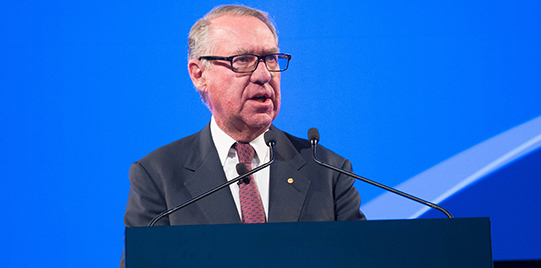ANZ Bank chair David Gonski has admitted that the major bank’s staff were too focused on “short-term fixes”, lacked a clear understanding of what it means to put customers first, and were hesitant to speak up about problems, which contributed to the major bank failing its customers.
Mr Gonski’s comments followed public pressure for the major bank to release the findings of its internal review into governance, culture and accountability.
ANZ and 35 other financial institutions were asked by the Australian Prudential Regulation Authority (APRA) to reflect on the findings of the Final Report of the Prudential Inquiry into Commonwealth Bank of Australia (CBA) to see if there are any relatable weaknesses. However, unlike some of its rivals, ANZ chose not to release its self-assessment report on the understanding that the document would be confidential.
According to Mr Gonski’s statement, released on Thursday (22 August), ANZ’s internal review also identified tribalism among teams (often at the expense of the broader group), lack of accountability of outcomes across ANZ below the senior executive level, fragmented infrastructures, drawn-out processes, and siloed teams.
The review also found a tendency among staff to accept problems rather than speak up.
“Another issue we identified has been a conditioned acceptance at ANZ that it’s ‘all too hard’ or ‘it’s the way it’s always been’,” Mr Gonski stated.
“We have a culture where our teams do not always speak up. When permission or a process is ambiguous, we can be conservative in our decision-making. Often, this leads to an outcome where we do nothing.
“This needs to change.”
In addition, the bank found that non-financial risk management lacked maturity – which APRA confirmed was “not unique” in the industry – as well as an increasingly reliance on informal networks.
On the accountability front, Mr Gonski noted that there has been some improvement in this area as a result of the Banking Executive Accountability Regime, which serves as an accountability framework, imposing higher standards of behaviour on banks and their senior executives and directors.
Moving forward, the chair said the big four bank would continue simplifying its business, products and process, and strive for a culture that encourages staff to do the right thing and speak up when they see something wrong.
“Just this month, we announced wide-ranging reforms to our remuneration structure, which will result in individual bonuses for the vast majority of employees being replaced by an incentive based on the overall performance of the group,” Mr Gonski said.
Further, the bank has committed to “significantly” cut down the time it takes to investigate issues and pay compensation, and would commence work to improve the management of non-financial risks.
Mr Gonski said the group is “determined” for the board to improve the way it holds management to account, focusing on ANZ’s long-term ambitions.
He added that there will be a “detailed review” of the board’s charter, to be completed by the end of 2019.
In response to the self-assessment reports of ANZ, NAB and Westpac, APRA asked the three major banks to raise their minimum capital reserves by $500 million each. This requirement is effective until the three major banks have completed their planned remediation to improve risk management and addressed issues that were identified in their self-assessments.
[Related: CBA weaknesses ‘not unique’ in industry: APRA]

